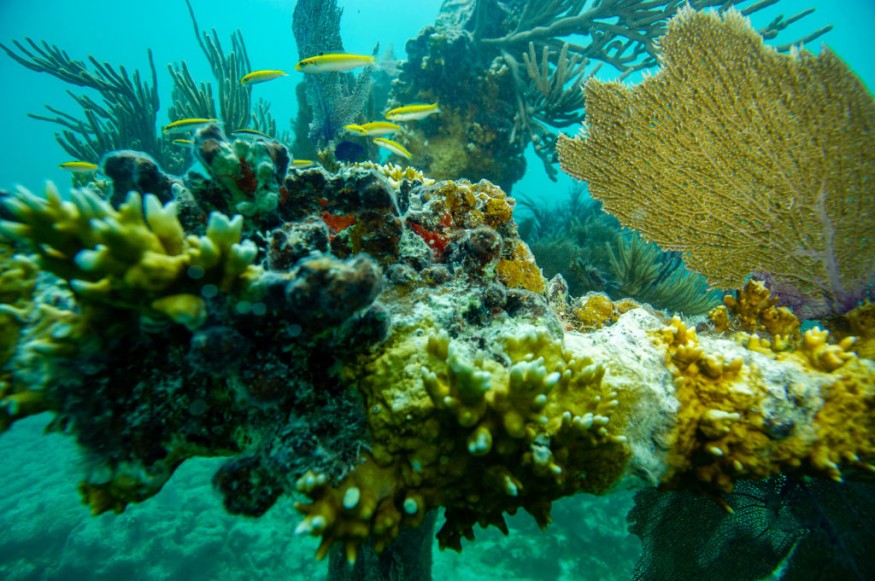
Experts found out that only 22% of Florida Keys' coral reefs survived from marine heat waves.
A team of researchers from the National Oceanic and Atmospheric Administration's Mission: Iconic Reefs program as well as partners from Mote Marine Laboratory & Aquarium and the Coral Restoration Foundation completed a scientific mission that aimed to quantify the impact of 2023's marine heat wave on corals in Florida Keys National Marine Sanctuary.
Record-High Marine Temperature
Data from the research cruise will help NOAA and partners understand the extent of the record-high marine temperatures from the summer of 2023 on restored corals, which are nursery-raised and out-planted on the reef.
The data will also inform future restoration strategies to increase coral resilience.
Researchers aboard the contracted vessel M/V Makai surveyed 64 locations at five of the seven Mission: Iconic Reef sites - Carysfort Reef, Horseshoe Reef, Sombrero Reef, Looe Key Reef and Eastern Dry Rocks.
They examined the reef-building stony acroporid corals out-planted by the Coral Restoration Foundation, Mote Marine Laboratory & Aquarium and Reef Renewal.
The research followed a mission in August that assessed coral health during the height of the marine heat wave and it also incorporated data about how eight additional weeks of high temperatures affected corals.
Preliminary findings from the latest assessment have provided insights into the current state of coral health.
Initial data indicated that less than 22% of approximately 1,500 staghorn coral (Acropora cervicornis) surveyed remain alive.
They also found out that only the two most northern reefs surveyed, Carysfort Reef and Horseshoe Reef, had any living staghorn coral.
Of the five reefs surveyed, live elkhorn coral (Acropora palmata) was found at only three sites: Carysfort Reef, Sombrero Reef in the middle Keys and Eastern Dry Rocks off Key West.
Meanwhile, no live staghorn or elkhorn corals were observed at sample areas surveyed at Looe Key Reef in the lower Florida Keys. Researchers said that all data collected during the assessment are currently undergoing thorough review and analysis.
Though anecdotal evidence from Mission: Iconic Reefs partners suggested that boulder, massive and brain coral outplants fared better during the marine heat wave, the rough weather conditions during this mission prevented the research team from surveying more than the branching coral assemblages of staghorn and elkhorn coral.
Backbone Of Tourism
Researchers noted that the findings from the assessment are critical to understanding the impacts to corals throughout the Florida Keys following the unprecedented marine heat wave,"
They said that this also offers a glimpse into the coral's future in a warming world.
Scientists said that Florida's coral reefs are the backbone of the region's tourism and recreation economy as it provides important ecological services to coastal communities.
The health of Florida's coral ecosystems has declined since the 1970s due to damage from hurricanes, heat-induced bleaching, disease and increased impacts from human activities.
It was during the summer of 2023 when corals in the Florida Keys faced the hottest ocean temperatures on record, and the longest-lasting marine heat wave recorded in three decades.
The marine heat wave prompted emergency evacuation of in-water nursery corals to land-based nurseries to limit heat exposure.
Related Article : Pale-Looking Florida Coral Reefs Suffer From Environment Health Issues Due to Heat Stress
© 2026 NatureWorldNews.com All rights reserved. Do not reproduce without permission.





